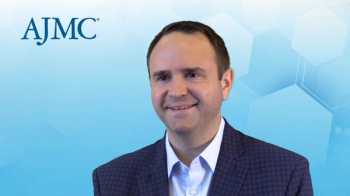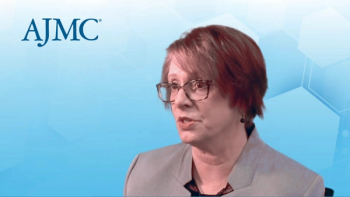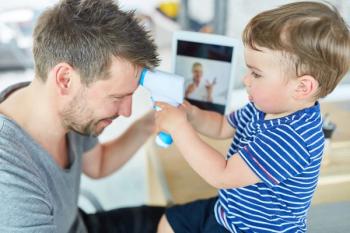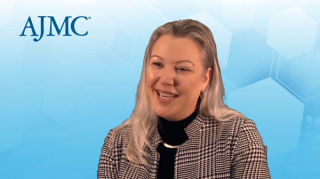
Digital Health
Latest News
Latest Videos

More News

Quality of life (QOL) for people living with autoimmune diseases benefits from an integrated approach that considers individual immune system sensitivities and patients’ life circumstances, a new study shows.

Use of a mobile app was not associated with better cardiac outcomes or completing a cardiac rehabilitation program.

Business Intelligence Is Easier to Implement Than AI, Says Highlands Oncology Group’s Jeff Hunnicutt
Jeff Hunnicutt, CEO of Highlands Oncology Group, discusses the difference between business intelligence and artificial intelligence (AI), including process implementation and data compilation.

Telehealth provides more flexibility for patients with gastrointestinal issues to better fit their care into their lives and around symptoms they may be experiencing, said Sam Holliday, co-founder and CEO of Oshi Health.

All technology-based interventions substantially improved mental health, but those partially supported by health care providers were shown to be most effective.

The Dario Diabetes Solution app was developed to help better manage type 2 diabetes.

This longitudinal analysis of claims data examined changes in telehealth and in-person delivery of services in Louisiana.

Steven Heatherly of Baptist Health in Kentucky talks about the success of heart clinics and promising results from remote patient monitoring.

Older age and low literacy were not barriers to self-monitoring and reporting disease activity.

A survey of health care leaders presented during the HIMSS Global Health Conference & Exhibition found most weren’t very satisfied with the technology they are offering patients.

Patients who had breast reconstruction or gynecologic surgical resection were equally satisfied with in-person and virtual postsurgical follow-up.

Amy Valley, vice president for clinical strategy and technology solutions at Cardinal Health, weighs both the benefits and potential risks of physicians using artificial intelligence technology in their oncology practices.

This 4-day event drew thousands of health care leaders to Nashville, Tennessee; in this column, Ron Southwick, editor of Chief Healthcare Executive, shares his thoughts from conversations and panels in Music City.

David R. Penberthy, MD, MBA, 2022-2023 Association of Community Cancer Centers president, addresses technological advancements made during his presidency and how community oncology is working to ensure gains in health equity continue moving forward.

Use of telehealth-delivered, live coaching of caregiver-child interactions led to improved management of behavioral challenges and increased compliance with caregiver direction.

In this interview from the Association of Community Cancer Centers (ACCC) 2023 Annual Meeting and Cancer Center Business Summit, Olalekan Ajayi, PharmD, MBA, ACCC president, addresses the use of artificial intelligence (AI) in health care equity and why data integrity is just as important as the models used with the data.

A study conducted in China found that participants who used a smartphone application had improved insomnia severity compared with those who received sleep education.

Digital health data can facilitate the participation of underrepresented and diverse patient populations in clinical trials, but first the FDA must build its capability to evaluate such information in its regulatory processes for new drug development.

The authors examine the prevalence of telemedicine services provided by mental health care organizations before and after onset of the COVID-19 pandemic in the United States.

Given the cost and impact of chronic diseases on the US health care system, health technology like digital coaching for chronic diseases is increasingly being looked at as a way to offer personalized therapies on a wide scale.

The growth in telehealth utilization continued an increase begun in November 2022.

A feasibility study shows many providers intended to continue using the tool, although some said they did not have sufficient time or did not need the tool.

Eric Rackow, MD, cofounder and executive chairman of eFamilyCare, discusses the importance of virtual support for family caregivers.

Eric Rackow, MD, cofounder and executive chairman of eFamilyCare, discusses eFamilyCare's role for family caregivers and how the system can help overcome social determinants of health that may impact patient outcomes.

Despite the diverse array of opinions among adults with intellectual disabilities, digital mental health interventions may complement in-person therapy for this population.













